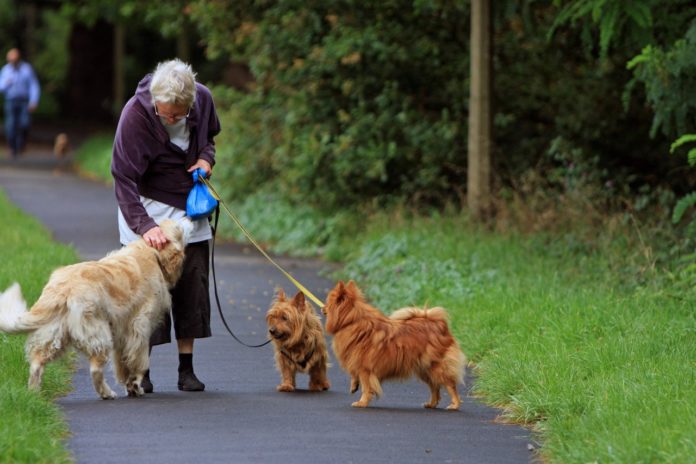Pets could help individuals avoid the negative consequences of loneliness after a loss, suggests a new study
Researchers have found the companionship of a pet after the loss of a spouse can help reduce feelings of depression and loneliness in older adults. September is healthy aging month.
The study published in The Gerontologist, examined depressive symptoms and loneliness among people age 50 and older who experienced the loss of a spouse through death or divorce.
“Increasingly, there’s evidence that our social support networks are really beneficial for maintaining our mental health following stressful events, despite the devastation we experience in later life when we experience major social losses,” said Dawn Carr, lead author and FSU associate professor of sociology. “I was interested in understanding alternatives to human networks for buffering the psychological consequences of spousal loss.”
They found all individuals who lost their spouse experienced higher levels of depression. However, people without a pet experienced more significant increases in depressive symptoms and higher loneliness than those who had pets
The study compared individuals who experienced the loss of a spouse to those who stayed continuously married. Then they explored whether the effects of spousal loss differed for those who had a pet at the time of the death or divorce.
They found all individuals who lost their spouse experienced higher levels of depression. However, people without a pet experienced more significant increases in depressive symptoms and higher loneliness than those who had pets. In fact, those who had a pet and experienced the death or divorce of their spouse were no lonelier than older adults who didn’t experience one of those events.
Research team used data from a sample of older adults who participated in an experimental survey about human animal interaction as part of the University of Michigan’s Health and Retirement Study in 2012, and linked the data with additional data collected between 2008 and 2014. They identified pet owners as those participants who either had a cat or a dog.
“Oftentimes, the relationship we have with our spouse is our most intimate, where our sense of self is really embedded in that relationship,” Carr said. “So, losing that sense of purpose and meaning in our lives that comes from that relationship can be really devastating. A pet might help offset some of those feelings. It makes sense to think, ‘Well at least this pet still needs me. I can take care of it. I can love it and it appreciates me.’ That ability to give back and give love is really pretty powerful.”
The findings have potential consequences for social policies and it may be beneficial to include companion animals in the treatment of people residing in senior-living facilities, or reducing barriers to pet ownership in such settings.


